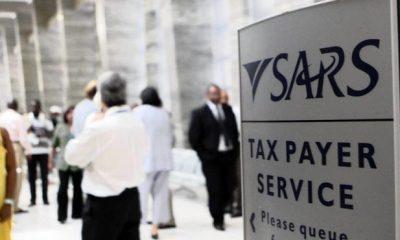Business
SARS Warns Taxpayers About Fake ‘Final Demand’ Letters Circulating Online

Scammers Are Posing as SARS; Here’s How to Spot the Difference
South Africans are once again being urged to stay alert as fake “final demand” letters claiming to come from the South African Revenue Service (SARS) circulate online. These fraudulent notices have spiked as tax season officially closes for non-provisional taxpayers, catching individuals whose returns are still pending.
According to Tax Consulting South Africa, scammers are sending convincing emails that closely mimic SARS’ legitimate correspondence. These fake notices falsely warn taxpayers of pending legal action and demand immediate payment within 24 hours. The timing is no coincidence. With many South Africans currently finalising their returns, the surge in activity creates an opportunity for fraudsters to exploit fear and confusion.
How to Tell a Real SARS Letter From a Fake One
A genuine SARS letter of final demand is a serious legal notice issued under the Tax Administration Act. It’s only sent after previous reminders have gone unanswered and gives taxpayers 10 business days to respond before debt recovery steps begin.
Real SARS letters also include critical details such as:
-
The taxpayer’s full name and tax reference number
-
A case number and the exact amount owed
-
A clear outline of available remedies, such as Suspension of Payment, Payment Arrangements, or a Compromise of Tax Debt
By contrast, fake letters contain glaring red flags: they often address the recipient simply as “Taxpayer,” include threatening or urgent language, and ask for payment within 24 hours. They may also use unofficial email domains like @SARSpay.org, @govtax.co.za, or @sars-mail.org instead of the official @sars.gov.za address.
Perhaps the biggest warning sign: fake letters link to suspicious PDFs or websites. Genuine SARS communications never require you to click external links.
What to Do If You Receive a “Final Demand”
SARS and tax experts stress one golden rule: always verify through eFiling. If a letter doesn’t appear on your official eFiling profile, it’s not legitimate. Taxpayers can also confirm directly through the SARS MobiApp or by calling the contact centre.
If the letter is genuine, ignoring it can have serious consequences. Once a legitimate final demand expires, SARS can instruct banks to recover money directly from your account or appoint the Sheriff of the Court to attach assets. The agency also has the legal power to secure civil judgments against noncompliant taxpayers.
However, SARS offers relief measures to help taxpayers manage or dispute debt. Those who can’t pay immediately can apply for a payment arrangement or, in cases of financial hardship, request a compromise where penalties and interest are written off.
Stay Smart and Stay Safe
Both SARS and Tax Consulting SA warn that the worst thing anyone can do is ignore a demand, real or fake. A legitimate letter must be addressed immediately, while a fraudulent one should be reported to [email protected] to protect others from identity theft.
In short, if a “final demand” letter lands in your inbox, pause before you panic. Check the details, verify the sender, and confirm it through your eFiling profile. Scammers may copy the logo, but they can’t fake the system.
Follow Joburg ETC on Facebook, Twitter, TikT
For more News in Johannesburg, visit joburgetc.com
Source: Business Tech
Featured Image: Business Day





















